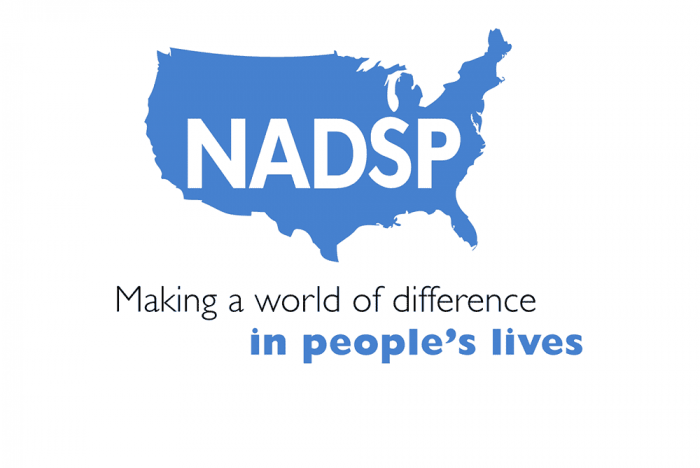Amplifying The Voices Of Direct Support Professionals
Wednesday, May 3 – Thursday, May 4, 2023
On May 3 and 4, the National Alliance for Direct Support Professionals (NADSP) will embark on its second national advocacy event to bring the direct support professional (DSP) perspective to the forefront of Congress and the Administration during a time of unprecedented workforce challenges. Hardships from the pandemic and recent legislation have provided new insights and opportunities for the direct support workforce that supports people with disabilities.
The NADSP recognizes the previous absence and critical importance of lifting the voices of DSPs to federal policymakers, so that public policy can be informed by the people who are on the front lines of supporting people with disabilities to live, work, and thrive in the community. On April 13, 2023, the NADSP will provide DSPs from all across the country with comprehensive advocacy virtual training. This will lead up to the 1.5-day virtual event in May that will culminate with virtual meetings with Congressional leaders and staff to educate and advocate on NADSP’s public policy priorities for 2023.
NADSP’s 2023 Policy Priorities
- Establish a Standard Occupational Classification (SOC) for direct support professionals within the Bureau of Labor Statistics (BLS).
- Assure effective implementation of workforce development initiatives, authorized through legislation, that leads to wages commensurate with the level of responsibility and the complexity of this work, as well as career ladder opportunities that lead to professional growth.
A detailed schedule of events along with the expectations of attendees is on the event landing page. Ready to answer their call to action? Use this link to learn more.


















